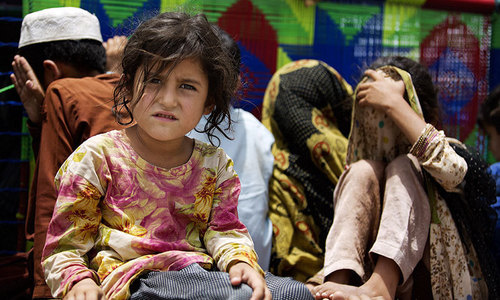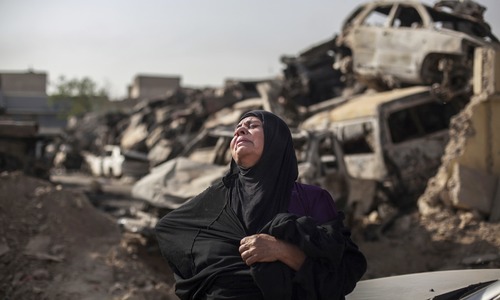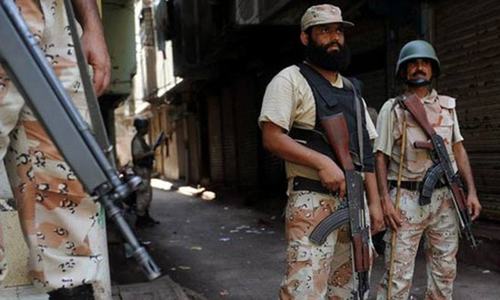THE statement by the National Counter Terrorism Authority chief, Ihsan Ghani, at a news conference on Friday that the militant Islamic State group poses a real threat to Pakistan comes as no surprise to anyone watching regional developments.
The growing presence of IS in Afghanistan, he said, is bound to have spillover effects in this country.
Also read: Defining terrorism
That is a logical inference; violent extremism does not adhere to geographical boundaries. Indeed one can argue that IS already has a presence here. Several acts of terrorism in recent years have been claimed by the group.
Among them are the church bombing in Quetta a few days before Christmas last year; the bombing of several shrines including that of Shah Noorani in Balochistan and Lal Shahbaz Qalandar in Sindh; the kidnapping and murder of two Chinese nationals in Quetta, etc.
There is also reason to fear that IS-affiliated Pakistani militants returning from the Syrian civil war could unleash further violence in this country.
Nevertheless, the country’s leadership has tended to downplay the clear and present danger from IS. Former interior minister Chaudhry Nisar Ali, for example, consistently denied the group’s presence on Pakistani soil, once doing so only days after IB director general Aftab Sultan had stated to the contrary.
The most recent assertion by Mr Ghani about the threat to Pakistan from IS should, in theory, carry weight. After all, he heads the body that is supposed to oversee counterterrorism operations in the country on a strategic level.
Unfortunately, despite nine years having passed since it was formed, Nacta remains toothless and ineffectual.
According to the law under which it operates, the body’s mandate is to formulate a national counterterrorism strategy and monitor its implementation, and collate information from all intelligence agencies to produce national threat assessment reports for the government.
Instead, Nacta’s progress has been halting and piecemeal. The draft of the long-pending national counterterrorism strategy has only last November been submitted to the government.
Intelligence agencies still tend to work in silos, reluctant to share information with each other, precluding the cohesive approach necessary to stamp out every vestige of terrorism, in which IS is but one player.
In order for Nacta to play the role originally envisaged for it, the government must recognise the importance of civilian input at the federal level in the fight against terrorism.
Failing this, the gains from the military operations cannot possibly be sustained.
Published in Dawn, April 2nd, 2018












































